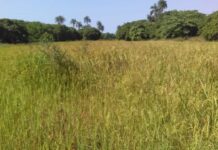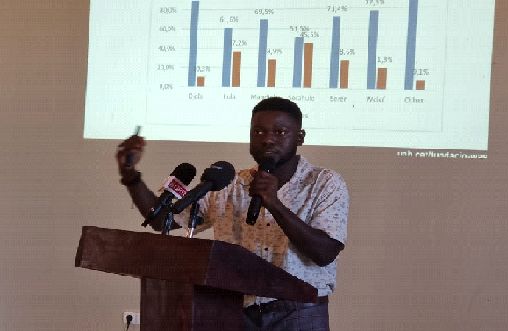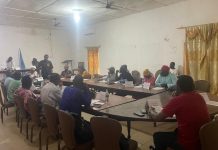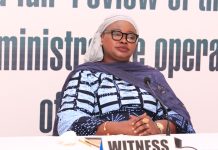By Kebba Secka
Surveys conducted by Wassu Gambia Kafo (WGK) in 2021 and 2022, have disclosed a high prevalence rate of child marriage in the Gambia, of about eighty percent (80). Unwanted pregnancy and avoidance of premarital sex were found to be the most outstanding reasons for the continuous practice of child marriage. The study was said to be conducted in all seven administrative regions of the country with particular focus on gender, age and demography. The survey covered two hundred men and two hundred women in order to be gender balance.
Results of every survey of WGK, is guided by Scientific analysis to be able to understand the negative impacts and challenges of the practice of FGM/C and child marriage, and the results obtained from the studies have been communicated to the public through the media and other relevant officials.
As a result, a press conference was held on Thursday December 15th to share with the public the outcomes of the survey at a local hotel in Kotu.
Leading into the presentation, Segga Sanyang, coordinator of WGK gave a rundown of how the survey was conducted and lessons drawn from it. “All the seven administrative regions were targeted and ten questionnaires were developed and shared among the participants. The study entails qualitative and quantitative including focus group discussions. The qualitative study ranged between June 2021 and September, 2022 targeting youths including teachers from both the urban and rural areas,” Segga said.
Among the outcomes, Segga said the younger generation were more willing and against the practice of early marriage than the older age. He said the older age were more defensive to the practice as they use religion, culture and tradition as backups. He said the variables used in the survey were based on age, gender and administrative regions.
He said all the different ethnic groups in the country were represented in the survey with the Wollof, Fula, Jola, Madinka and Serahule, the most outstanding in terms of endorsing the continuity of child marriage in the country. Segga said the aforementioned groups are the most prevalent with the practice and their endorsement for continuity is a cause for concern.
“This means that more girls are at risk of getting marriage before the age of eighteen,” Segga said. That one of the questionnaire that asked if any of the participants will agree to give away their daughters for marriage before the age of eighteen, was answered by the same ethnic groups that are identified as most prevalent, responded positively to the practice.
On the question of whether child marriage has negative impacts, participants from Central River, Upper River and North Bank Regions mainly disagreed with the negative impacts. With this, the WGK coordinator called for more attention and education in that aspect.
“North Bank East and West were the highest in terms of percentage showing 76% followed by Upper River, Lower River and Central River Regions. These were the regions where participants confirmed that early marriage is good and it is practised in their households.” Segga said.
During questions and answer session with the press, Segga confirmed that both child marriage and FGM/C are practised in the Gambia at a high prevalent rate despite the existing national laws against them. When asked to share most torching experience during the survey, Segga said he was informed of a parent who gave away his girl child for marriage because he was unable to pay debt owed to the man, and this he said, analytically links the reasons for early marriage to poverty and unemployment.
WGK is a non governmental organisation, and conducts both qualitative and quantitative scientific research mainly on issues affecting the lives of women and girls. It was established in 1987 and since then, it has conducted various scientific researches in the aspect of Female Genital Mutilation and cutting (FGM/C) as well as child marriage.





















